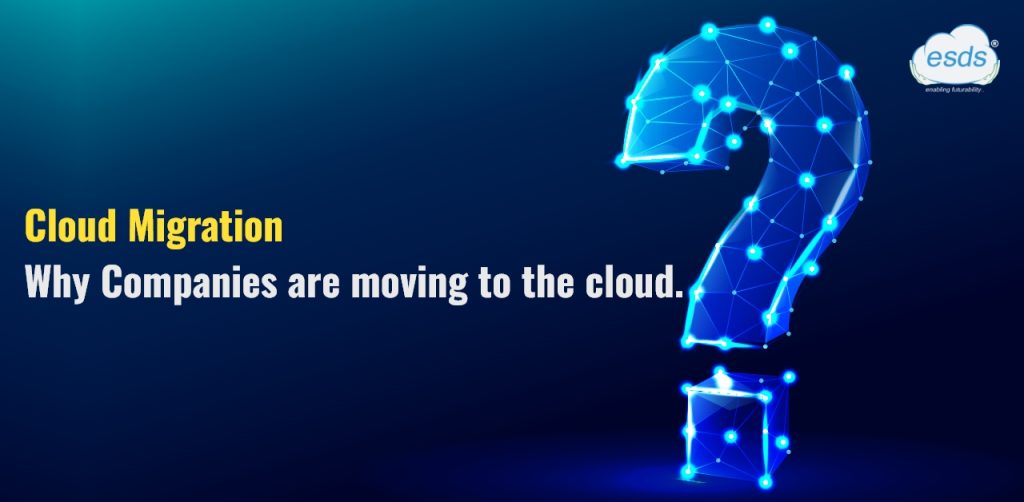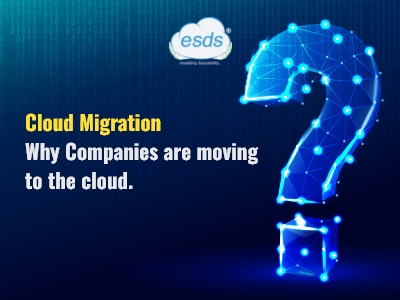Cloud Migration: Why Companies Are Moving to the Cloud

In recent years, there has been a significant shift in the way businesses operate, with more and more companies opting to migrate their operations to the cloud. This move towards cloud migration has been driven by a variety of factors, each contributing to the overall appeal of cloud-based solutions for businesses of all sizes. In this blog post, we will explore the reasons why companies are increasingly choosing to move to the cloud.
Flexibility and Scalability
One of the primary reasons for the growing popularity of cloud migration is the flexibility and scalability it offers to businesses. Cloud environments allow companies to quickly scale their infrastructure up or down based on their changing needs, without the need for significant upfront investment in physical hardware. This flexibility enables businesses to adapt to fluctuating demands and ensures that they are not over-provisioning resources, ultimately leading to cost savings and improved operational efficiency. Cloud migration provides businesses with the ability to easily adjust their infrastructure to meet their evolving requirements. This means that companies can quickly scale their resources up during peak periods of demand, such as during seasonal sales or marketing campaigns. Conversely, they can also scale down during slower periods to avoid unnecessary costs. This level of flexibility allows businesses to optimize their resource allocation and ensure that they are always operating at an optimal level.
Furthermore, cloud migration eliminates the need for companies to invest in expensive physical hardware that may become obsolete over time. Instead, businesses can rely on the cloud service provider to handle the infrastructure, allowing them to focus on their core competencies. This not only saves costs but also frees up valuable resources that can be allocated to other strategic initiatives.
Cost Savings
Cost considerations play a significant role in the decision to migrate to the cloud. By moving to the cloud, companies can reduce their spending on physical hardware, maintenance, and energy consumption. Additionally, the pay-as-you-go pricing model offered by many cloud service providers allows businesses to pay only for the resources they use, eliminating the need for large upfront investments. This cost-effective approach to IT infrastructure is particularly appealing to startups and small to medium-sized enterprises looking to optimize their spending.
Cloud migration offers businesses the opportunity to reduce their capital expenditure (CapEx) and shift it to operational expenditure (OpEx). Instead of investing in expensive hardware and infrastructure, companies can leverage the cloud to access the resources they need on demand. This eliminates the need for upfront investments and allows businesses to allocate their financial resources more efficiently. Furthermore, cloud migration eliminates the need for businesses to maintain and upgrade their hardware. This responsibility falls on the cloud service provider, who is responsible for ensuring that the infrastructure is up-to-date and functioning optimally. This not only saves costs but also reduces the burden on the IT department, allowing them to focus on more strategic initiatives.
Enhanced Security and Reliability
Cloud service providers invest heavily in robust security measures and redundancies to protect their infrastructure and data. This level of security and reliability often surpasses what many companies can achieve with on-premises solutions. By migrating to the cloud, businesses can benefit from enterprise-grade security protocols, data encryption, and regular backups, providing them with peace of mind and ensuring business continuity in the event of unforeseen disruptions. Cloud migration offers businesses the opportunity to leverage the expertise and resources of cloud service providers to enhance their security posture. These providers have dedicated teams of security experts who constantly monitor and update their systems to protect against emerging threats. Additionally, they employ advanced encryption techniques to safeguard data both at rest and in transit.
Furthermore, cloud service providers have redundant systems and data centers spread across multiple geographic locations. This ensures that even in the event of a localized disruption, businesses can continue to access their data and applications without interruption. This level of reliability is crucial for businesses that rely heavily on their IT infrastructure to operate efficiently.
Improved Collaboration and Accessibility
Cloud-based solutions facilitate seamless collaboration among employees, irrespective of their physical location. With data and applications hosted in the cloud, teams can work together in real-time, accessing the latest information and updates from any device with an internet connection. This level of accessibility and collaboration is precious in today’s increasingly remote and distributed work environments. Cloud migration enables businesses to break down geographical barriers and foster collaboration among their employees. With cloud-based productivity tools, teams can collaborate on documents, spreadsheets, and presentations in real-time, regardless of their physical location. This eliminates the need for cumbersome email chains and ensures that everyone is working on the latest version of a document.
Furthermore, cloud-based solutions offer businesses the ability to access their data and applications from any device with an internet connection. This means that employees can work from their preferred devices, whether a laptop, tablet, or smartphone. This level of accessibility allows businesses to embrace flexible work arrangements, such as remote work or bring-your-own-device (BYOD) policies.
Future-Proofing and Innovation
Embracing cloud migration enables companies to future-proof their IT infrastructure and stay ahead of technological advancements. Cloud service providers continually update and enhance their offerings, providing businesses with access to the latest innovations in areas such as artificial intelligence, machine learning, and data analytics. By leveraging these cutting-edge technologies, companies can drive innovation and maintain a competitive edge in their respective industries. Cloud migration offers businesses the opportunity to tap into the vast resources and expertise of cloud service providers. These providers invest heavily in research and development to stay at the forefront of technological advancements. By migrating to the cloud, businesses can leverage these advancements without the need for significant investments in their infrastructure. Furthermore, cloud service providers offer a wide range of services and tools that enable businesses to harness the power of emerging technologies.
Can You Afford to Ignore Cloud Migration?
Since cloud migration carries some risk, many small business owners might be inclined to put off their cloud-related plans. However, these delays may give their businesses a serious competitive disadvantage:
- They are overpaying: – Maintenance expenses and legacy apps may be taking funds away from other important projects.
- Inadequate capital investment: – Businesses can be spending money on new software and hardware to support an outdated legacy platform, but this is a seldom profitable strategy.
- Unable to grow: – Many companies have to launch and deploy new apps fast. With legacy infrastructure, this is sometimes challenging or even unfeasible.
- security weaknesses: – Hackers and fraudsters find outdated software and unsupported systems to be appealing targets.
By 2024, most enterprises will spend 80 percent of every IT hosting dollar on the cloud, according to McKinsey. This investment includes private cloud, SaaS, IaaS, and PaaS.
Conclusion
The decision to migrate to the cloud is driven by a combination of factors, each contributing to the compelling business case for embracing cloud-based solutions. From cost savings and scalability to enhanced security and innovation, the benefits of cloud migration are undeniable. As businesses continue to navigate an increasingly digital landscape, the cloud presents itself as a powerful enabler of growth, efficiency, and agility, making it a strategic imperative for companies looking to thrive in the modern era.
Here ESDS comes for recuse which manages your all IT infrastructure for your business needs like IT/Cloud Operations, DC Migration Services, and DC Infra Operation Services.
- Understanding Private Cloud Services in Enterprise IT Environments - April 17, 2025
- Why Do You Need Vulnerability Assessment and Penetration Testing? - March 13, 2025
- How to Choose the Right Private Cloud Service Provider in 2025? - February 27, 2025
